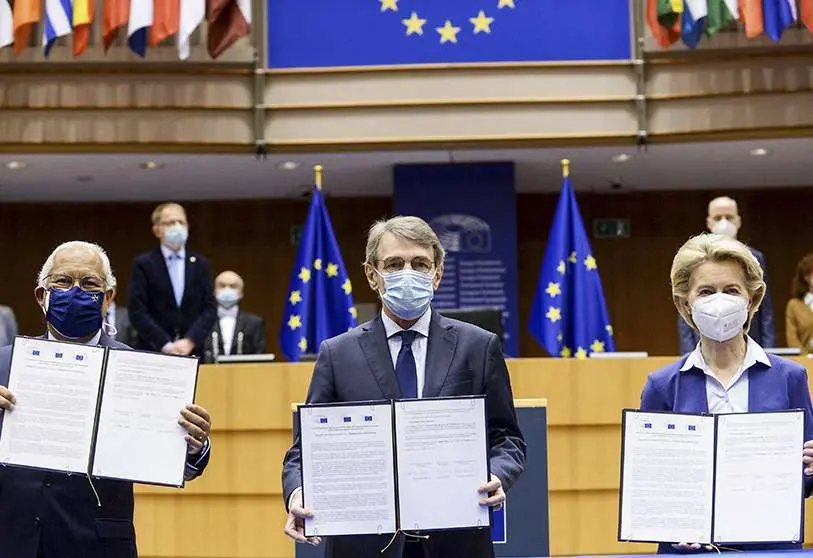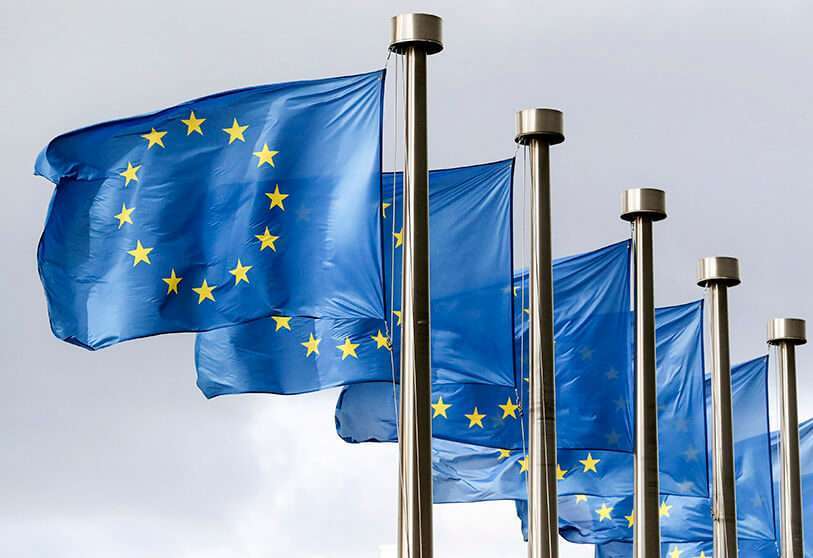A difficult road to travel: the Conference on the Future of Europe

It seems that the Conference on the Future of Europe, which was supposed to begin almost a year ago but has been postponed not only because of the pandemic but also because of the internal difficulties that have been encountered to carry it out, is finally about to start.
What is the Conference on the Future of Europe? It would be a European initiative, announced by President Ursula von der Leyen in July 2019, in which various issues are to be discussed. At first it seemed that it would focus on the possibility of reforms in the EU institutions, especially with regard to the enthronement of the "spitzenkandidat" (the need for the president of the European Commission to be elected by the Parliament from among the heads of the lists of the groups that stood for election), an issue that was at the centre of much of the campaign for the last European elections. Now everything seems to indicate that the issues to be discussed are much more open, ranging from other institutional reforms, migration, strengthening the rule of law, health, instruments for citizens' participation in EU decision-making, the economic crisis and others.
On March 11, the three presidents of the institutions, Sassoli for the European Parliament, Von der Leyen for the Commission and Costa for the Council of the European Union, signed the institutional declaration launching the Conference and announced that it would begin its work on May 9, a year later than planned.
It had been announced that the Conference would last two years, and that all the EU institutions, the Member States (especially the parliaments) and civil society would have to be involved. All of them were called upon to express their opinion through the multiple consultation mechanisms established by the Union, some telematic and others face-to-face. But it seems that, in the end, it will only last for one year. This would not be a Convention to reform the Treaties, but a preliminary step in which it would be necessary to determine whether this was necessary and/or possible, and in which areas. The pandemic put off the possibility of face-to-face hearings, and the creation of a multilingual platform was set in motion to make up for this complex participation as far as possible.

But the pandemic was not the only cause of the delay in launching the Conference. Perhaps the biggest stumbling block was inter-institutional rivalry, as neither the Commission, nor the Parliament nor the Council wanted to give up the limelight. It has not been possible to agree on a chairperson. This in turn meant that a complicated Presidency and a complex Executive Committee had to be devised before deciding to open it. The Presidency would be tripartite, with the President of the Commission, the President of the Parliament and the rotating President of the Council for the duration of the Conference. The Executive Committee is expected to have three members and four observers, including the Economic and Social Committee or Cosac (Conference of Parliamentary Committees for EU Affairs of Parliaments of the Member States). And this is still subject to change as the European Parliament has expressed misgivings about the composition of the Executive Committee.
Atalayar and Citizens pro Europe have sought the opinions of leading experts in order to assess what this EU initiative could mean. Two main questions were addressed by these experts: the importance of the Conference on the one hand, and on the other hand, what issues should be studied at the Conference, although it was not excluded that other issues could be raised which, based on their fields of interest, would also be of importance.
Although it is a well-known fact that, in the words of Vicente Garrido, "we are not aware of the importance of European law in the development of our daily lives", for Miguel Angel Martín Ramos, the Conference must be framed in the context of what he considers "a change of era", which we have the privilege of witnessing. Let us not forget that, as Teresa Nevado rightly reminds us, "the European Union is more, much more, than an economic project", which requires "citizens to strengthen our sense of belonging to this space".

The Conference is taking place, as many experts note, in a period that Nuria González calls "democratic erosion" because we can see that liberal democracy is suffering setbacks, especially in terms of the strength of the majority principle, to such an extent that we can ask ourselves whether it would be possible for the EU to survive "in the event that democratic erosion in its member states continues", as this would lead to an increase in mistrust of the institutions. The Conference should therefore consider how we strengthen Europe and its values, without falling into nationalist or authoritarian temptations.
This will not be easy. Daniel Berzosa warns that the Conference must set its objectives "in the short, medium and long term" as well as specifying "the possibility and the means to achieve them". As Alessandra Silveira rightly points out, the construction of a "collective will" based on both "vertical integration" and "horizontal integration" must be taken into account. It would not be a question, and this must also be borne in mind, of artificially creating a European people, but, perhaps - and this is my opinion on the matter, in line with Habermas's idea - of forging a new collective identity that transcends national borders around a new concept of citizenship.
This implies that the Conference should not only involve the institutions, be they European, national or regional, but that civil society should want to be a co-protagonist in this forum for reflection. At a time when populism and nationalism are converging to try to wreck the idea of a united Europe, the realisation of all the challenges that we will have to face in the near future, as Miriam Tey asserts, it is essential to reflect on the role of networks, as an element that is increasingly becoming part of our lives, as it conditions "economic development, communication and knowledge". Susana del Río warns that "the conference opens up two opportunities: to revitalise the link between civil society and the European project and to strengthen its integration process by reviewing the EU's decision-making method".

This leads us to indicate which would be the most important aspects of EU life, as well as of life in the EU, which could be the subject of study at the Conference. Without being exhaustive, we can highlight a few in general terms, as we will try to go into a number of them in more detail in future analyses.
In all fora where the issue is raised, two major themes come to the fore: the pandemic, with all that it has entailed in many areas, and the need to address institutional reforms to bring the Union and its citizens closer together. In fact, the two issues are often intertwined, as is evident from the responses of our experts.
Susana del Río insists that, given the complexity of the Conference, it is necessary for it to take place in a very orderly fashion, and if, on the one hand, attention should be paid to the European recovery plan, the Green Pact or the migration pact, based on cohesion and solidarity, on the other hand, attention should be paid to the transition from unanimity to qualified majority, the recovery of the Spitzankandidat model or transnational lists, always conceiving the participatory democracy that underlies the Conference as a complement to representative democracy, which is the axis of the relationship between institutions and citizens.
Alessandra Silveira considers the strengthening of inter-citizen solidarity to be inexcusable in this diverse and sometimes contradictory Europe. Divergences need to be democratically accommodated through learning processes (the Conference is one of them) to which the media cannot be alienated, as they can make a decisive contribution to opening up public opinion among the different Member States and warning national political parties of the risks we run if we do not focus on defending Europe's heritage: the rule of law, democracy and human rights.
But this requires "political will" (Daniel Berzosa's words), that is to say, we need to know whether those who are called upon to implement the Conference agreements are really determined to do so, since only if the answer is yes can we successfully tackle the specific institutional reforms on democratic legitimacy, executive power, foreign policy and defence policy.

On this point, as Juan Pablo Cardenal warns us, the Conference should devote special attention to how China is developing, not only politically and economically but also in the field of communication and in knowledge institutions; in all areas, in fact, since the consequences of all this are political and economic and have much more impact on us than they appear to have; This expert goes so far as to propose the creation of a body or agency that can carry out this function, given that the communication/information/disinformation that is reaching us seems essential to take it into account in order to combat these nationalisms that are so bad to remember in Europe.
Nuria González reminds us that it is also essential to make the reinforcement of European values an important axis of the Conference. For this expert, the reasons for the rejection of liberal postulates do not only lie in material issues or inequality, but rather in a cultural, values or spiritual crisis. "The illiberal temptation is not only present in Hungary and Poland, but threatens many European countries," she reminds us, which is why we should strive to take seriously the practice of European values within our own communities.
Of course, to do this, Teresa Nevado rightly points out, the Conference would have to ensure that a significant proportion of Europe's citizens feel involved in the Conference, feeling that they have a stake in the future it wants to shape. This entails the search for broadly representative groups of men and women, with the capacity to create opinion, to become involved in the work of the Conference, given that, although the initial situation is not the same in all Member States, the issues of labour rights, unemployment, pensions, social services, health, child protection, equality policies and migration are of interest to all of them.
We cannot simply take the view that this new legal system that appeared with the creation of the European Union, by being obligatory, already solves the problems. Vicente Garrido warns of the resistance of States, and sometimes of citizens, in this respect, which must be overcome in order to achieve this economic, political, social and, of course, legal union. The Conference provides an important framework for this debate.
Because, as Miguel Ángel Martín points out, Europe will be what the citizens want it to be. And the main axes that are institutionally proposed, the Green Pact, the 2030 Agency with its Sustainable Development Goals, the European Digital Strategy, are unavoidable. We have also seen how, not only because of the problems posed by the pandemic, citizens are demanding more competences from Europe, and the Member States should heed this demand and grant the EU more and better competences in the areas of health, culture, immigration, etc. A change of model is therefore needed.
In essence, it would also be important, in conclusion, to select which aspects of EU policies could be addressed without reforming the Treaties and which others would require such a reform. Because the Conference could also raise the idea that a new European Convention, one with normative power, might be needed to properly strengthen our integration model in order to be able to face the challenges we face.
Teresa Freixes, Jean Monnet Professor ad personam, Vice-President of the Royal European Academy of Doctors, and President of Citizens pro Europe



